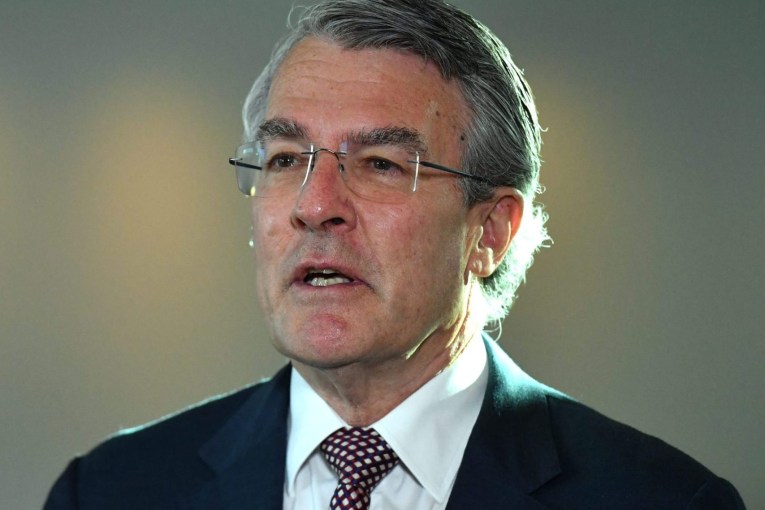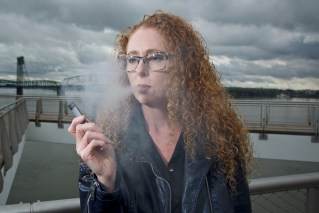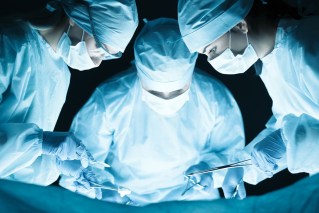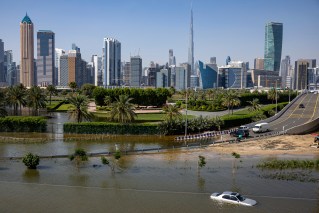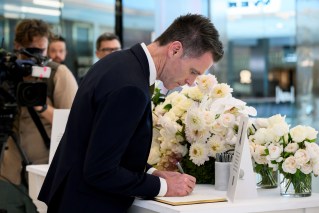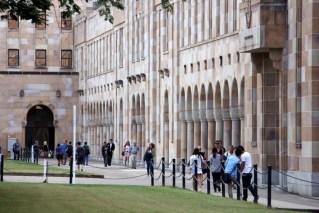‘One case can become thousands’: Expert says NSW infection rates will top 2200 cases per day
Australia has recorded the most new COVID-19 infections since the start of the pandemic. As the NSW situation continues to deteriorate, a leading epidemiologist has warned its daily COVID-19 case numbers could spiral to more than 2200.
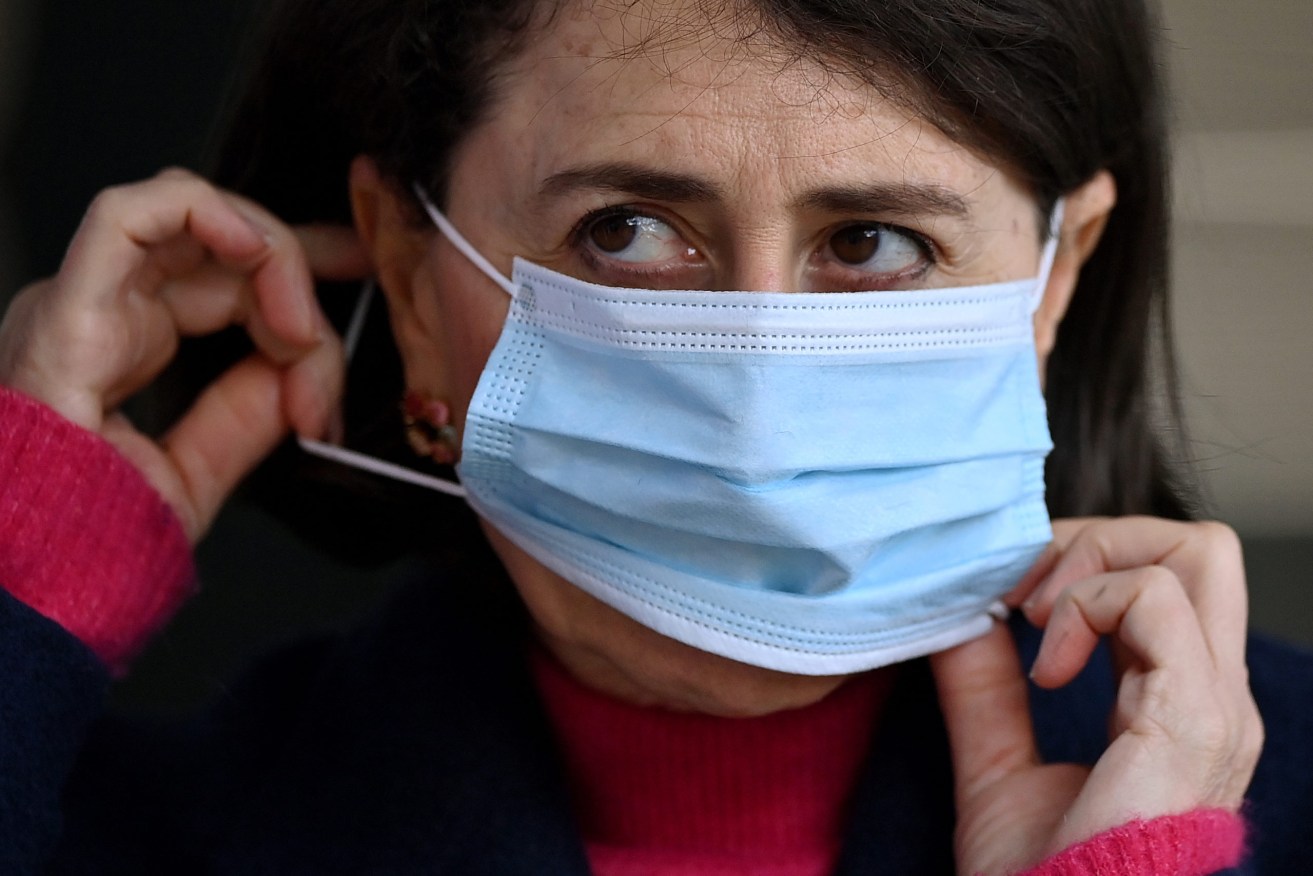
NSW Premier Gladys Berejiklian during a press conference in Sydney on Sunday. (AAP Image/Joel Carrett)
After eight weeks of lockdown, NSW reported 633 new locally acquired cases on Wednesday, smashing the previous daily record by 155. Today, there were another 681 cases, scores of whom were in the community while infectious, helping deliver a record daily national total of 848 new cases.
Professor James McCaw – who specialises in infectious disease dynamics – said daily infection numbers in NSW could skyrocket in the next month.
“Our models show the possibility of increases and decreases, but I think it’s more likely to be well over 1000 and up to 2000 within a month or so,” McCaw told Nine newspapers on Thursday.
The thousands of unlinked cases mean the situation was likely to deteriorate, he said.
While western and south-western Sydney continue to record the majority of NSW cases, there were 25 new cases to report in western regions, with particular concerns for Dubbo and Wilcannia. The statewide lockdown remains in place.
Yet NSW Premier Gladys Berejiklian sought to focus on the fact 110,000 people had been vaccinated on Wednesday and 80 per cent of the eligible population would be vaccinated by mid-November.
“I know these are difficult times but I can also see the light at the end of the tunnel,” Berejiklian said.
In pointing to the future, Berejiklian also warned that other states would see higher numbers of COVID-19 cases.
“When you get to a certain level of vaccination and open up, Delta will creep in,” Berejiklian said.
“Everybody’s going to learn to live with Delta. Admittedly, in New South Wales we’re learning earlier than others.”
Asked whether other states could still deny entry to NSW, because of a high number of cases, Berejiklian said it was too early to predict what would happen but “we do need to co-exist with Delta”.
Queensland today reported zero new COVID-19 cases – both in the community and hotel quarantine – as it moves to ease restrictions imposed after recent outbreaks and lockdowns. However, authorities remain concerned by the potential for the Delta variant to cross the border from NSW and spread rapidly.
The Queensland Government had asked NSW whether the border on the Gold Coast could effectively be moved south, to help enforce travel restrictions, but received no response.
Instead, Australian Defence Force personnel will now help Queensland police guard border crossings, as health authorities try to vaccinate more people in the state’s south. Troops have already been deployed in NSW to assist with the public health response.
While encouraging Queenslanders to get vaccinated, Chief Health Officer Jeannette Young also implored people to follow the rules, wear masks, and get tested if they have symptoms.
“We know it could just take one case of Delta, as we’ve seen in New South Wales, to end up with thousands of cases,” Young said.
Victoria today reported 57 new community-acquired cases, 44 of whom were quarantined while infectious. The ACT reported 16 new cases.
Burnet Institute director Brendan Crabb said modelling showed daily cases could jump to between 3000 and 4000 within 30 days unless urgent steps were taken.
“We’re in now what is a national emergency,” he told the Nine Network on Thursday.
“We’re in a steam train that is heading towards a cliff, not heading towards a station which is where we should be going.”
Professor Crabb is urging the NSW government to implement uniform restrictions across all areas of Sydney including a curfew and five-kilometre travel limits.
He believes immediate action coupled with more generous support for workers and business could turn the situation around.
“The worse case scenario is we have an Italy-style health catastrophe. That is actually the trajectory at the moment,” Professor Crabb said.
“The best outcome is lockdown until sort of Christmas.
“Now, I don’t know how on earth they would keep numbers as they are now, because we are doubling every 11 days.”
Berejiklian has faced criticism for not imposing tougher restrictions, and faster, and today came under scrutiny for not being able to detail what life would be like once NSW reached its vaccination targets. She said “life will be much freer than it is now” but Delta would be a part of it, and Australia should move forward together.
-With Sean Parnell
